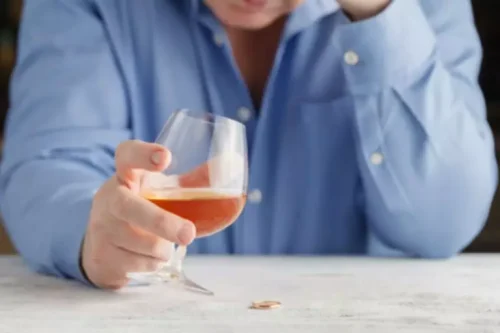
While patients may be strong-willed and highly motivated to maintain sobriety, they will need all of the help to overcome addiction, from both personal and professional circles. Preventing the worsening is a critical part of all drug treatment programs and involves identifying the warning signs and triggers. Family and friends are encouraged relapse prevention plan to educate themselves on how to stop enabling an addict and help them stay clean. Remember that there is no one-size-fits-all approach to relapse prevention. Each individual’s plan will be unique to their circumstances and needs. Don’t hesitate to reach out for support when needed and prioritize self-care throughout your recovery journey.
Care for yourself
It happens in definable, recognizable and preventable stages with telltale emotional patterns and other indicators. With some effort and practice, we should be able to detect the smallest and earliest signs of a potential relapse. Then we can address the issues as they arise and find a healthy way forward. Creating a tailored relapse prevention plan involves a detailed, personalized approach. Our comprehensive guide outlines relapse prevention planning’s key components and practical steps for creating and implementing an effective plan. This blog explores relapse prevention, strategies for avoiding triggers, and coping mechanisms to manage urges of repeat negative habits.

Phone, Video, or Live-Chat Support
Despite its importance, self-care is one of the most overlooked aspects of recovery. Without it, individuals can go to self-help meetings, have a sponsor, do step work, and still relapse. Self-care is difficult because recovering individuals tend to be hard on themselves [9]. Self-care is especially difficult for adult children of addicts [27]. Probably the most common misinterpretation of complete honesty is when individuals feel they must be honest about what is wrong with other people.
- Mindfulness-based Relapse Prevention (MBRP) appears to be as helpful as standard RP; more research is needed to determine whether MBRP offers greater benefit than standard RP.
- The group’s yoga sessions helped Lisa learn relaxation techniques that she could practice at home for stress reduction.
- It encourages people to see themselves as failures, attributing the cause of the lapse to enduring and uncontrollable internal factors, and feeling guilt and shame.
- For those times when we find ourselves alone, we need to have a plan.
How to Get Off Methamphetamine: Tips & Treatment Options
By paying attention to the cue or reminder, we can begin to respond with new routines. Whereas before we responded to the mortgage payment with drinking or irritability, we would now replace it with a new routine like calling our sponsor or going for a run. The benefits and rewards of healthy routines will naturally arise and reinforce our new behavior. If we cannot find the benefit or reward, it’s time to look at a new response or routine. Over time, these habits will quicken our calm and support our sobriety.
A successful plan must focus on results-oriented actions with clear objectives and measurable outcomes while taking into account potential challenges that may arise along the way. A relapse may look different for each person, depending on how much they use and the circumstances surrounding the relapse. Twelve-step groups include Alcoholics Anonymous (AA), Narcotics Anonymous (NA), Marijuana Anonymous (MA), Cocaine Anonymous (CA), Gamblers Anonymous (GA), and Adult Children of Alcoholics (ACA). Every country, every town, and almost every cruise ship has a 12-step meeting. There are other self-help groups, including Women for Sobriety, Secular Organizations for Sobriety, Smart Recovery, and Caduceus groups for health professionals. It has been shown that the way to get the most out of 12-step groups is to attend meetings regularly, have a sponsor, read 12-step materials, and have a goal of abstinence [24,25].

What Triggers Lead to Relapse?

Your journey to lasting sobriety is a powerful and transformative process. By creating a comprehensive relapse prevention plan and using the tools and strategies we’ve discussed in this article, you are taking major steps toward a healthier, substance-free life. Adolescents face unique challenges in addiction recovery due to their developmental stage, social dynamics, and the influence of peer pressure. Tailoring a relapse prevention plan to address these factors is essential for their successful recovery. Relapse prevention is a skill that takes dedication and following relapse prevention strategies.
High-risk situations include both internal experiences—positive memories of using or negative thoughts about the difficulty of resisting impulses—and situational cues. No matter how much abstinence is the desired goal, viewing any substance use at all as a relapse can actually increase the likelihood of future substance use. It encourages people to see themselves as failures, attributing the cause of the lapse to enduring and uncontrollable internal factors, and feeling guilt and shame.

When Does Relapse Occur?
These professionals can offer specialized guidance and help develop strategies tailored to your specific needs. Building a strong support system is a critical aspect of relapse prevention. Support can come from various sources, including https://ecosoberhouse.com/ friends, family, support groups, or professionals. These individuals can provide encouragement, guidance, and accountability throughout the recovery journey. Relapse is the return to substance abuse after being drug- or alcohol-free.
Clinical experience has shown that individuals have a hard time identifying their high-risk situations and believing that they are high-risk. Sometimes they think that avoiding high-risk situations is a sign of weakness. But their emotions and behaviors are setting them up for relapse down the road. Because clients are not consciously thinking about using during this stage, denial is a big part of emotional relapse.